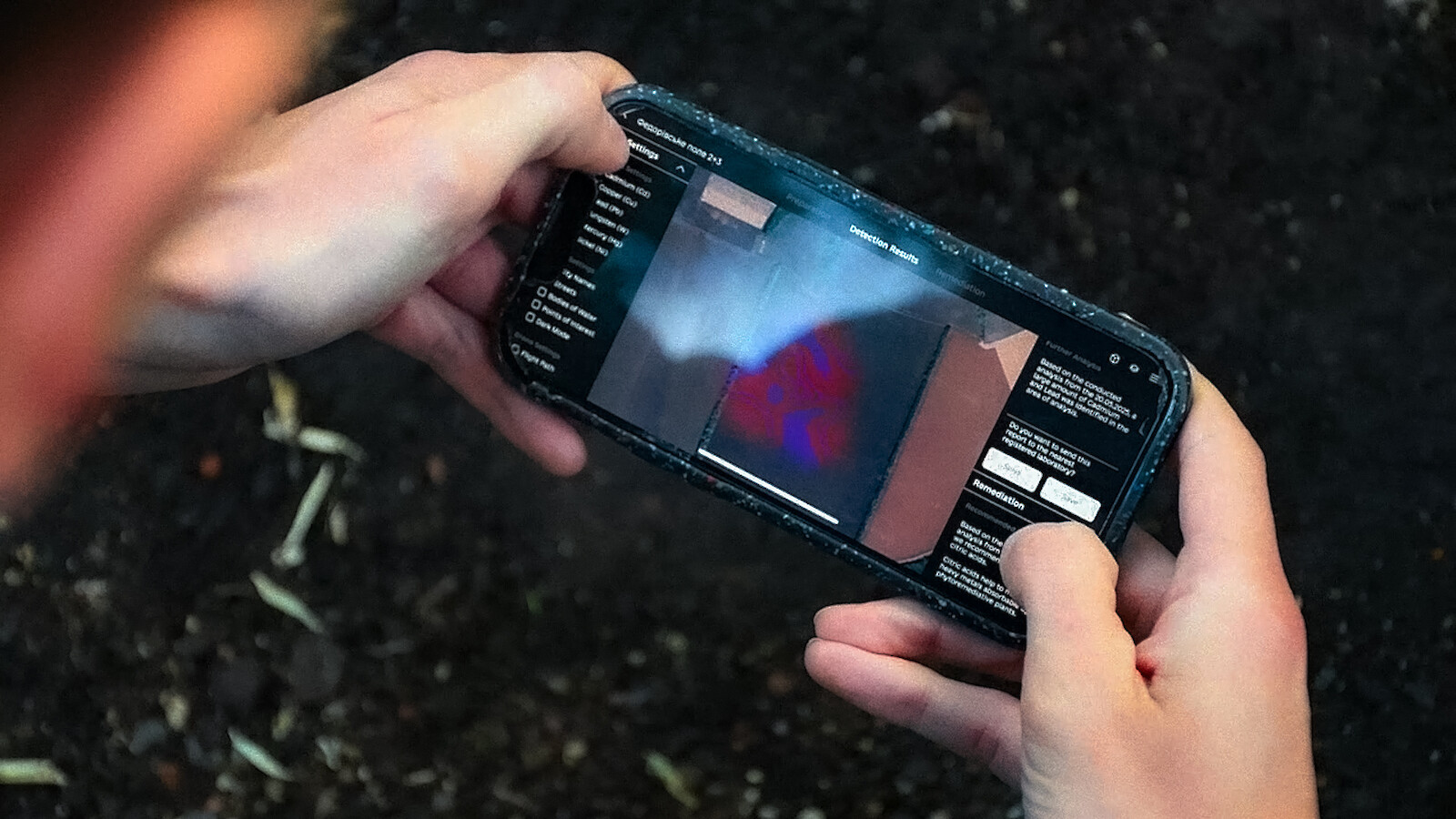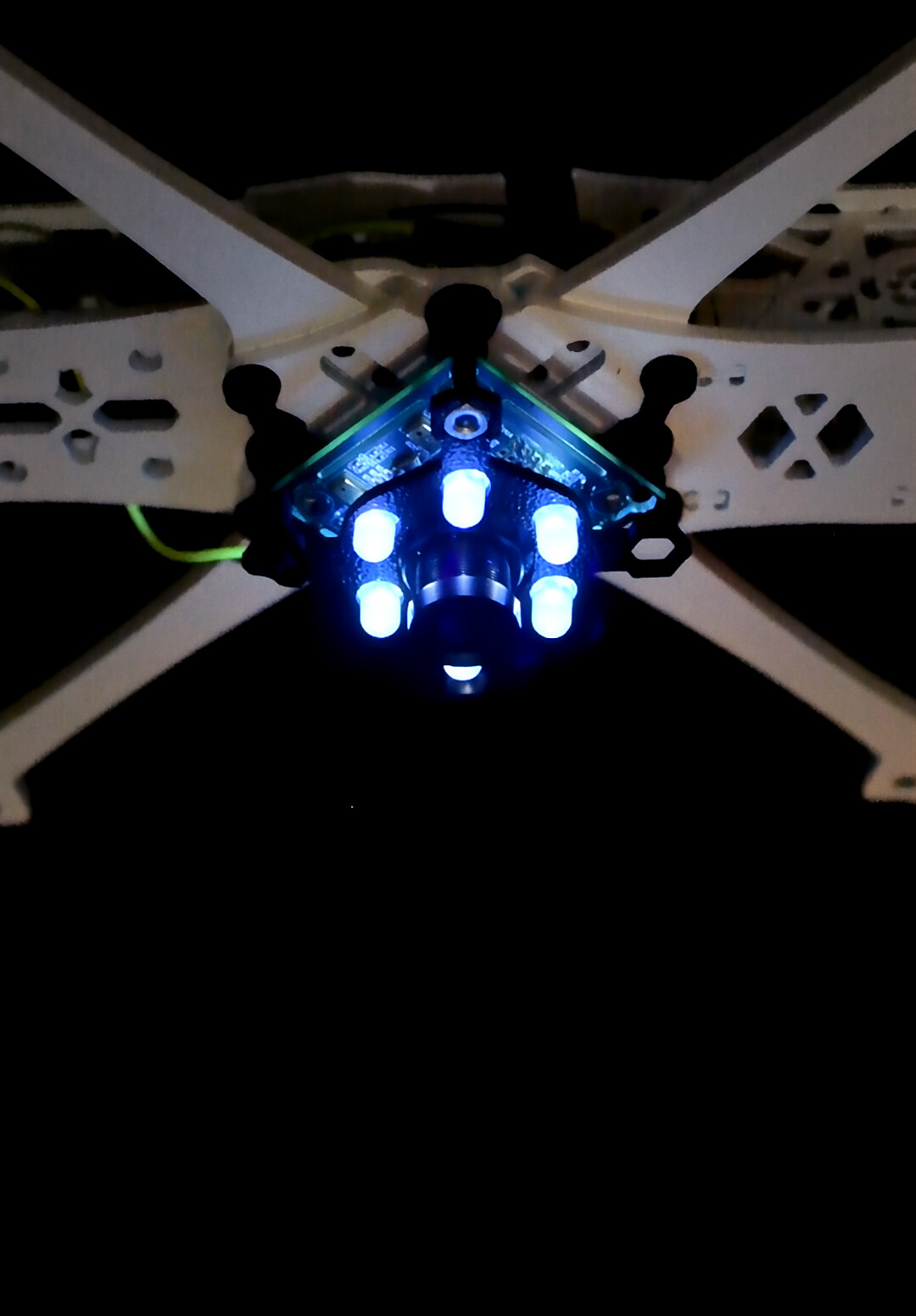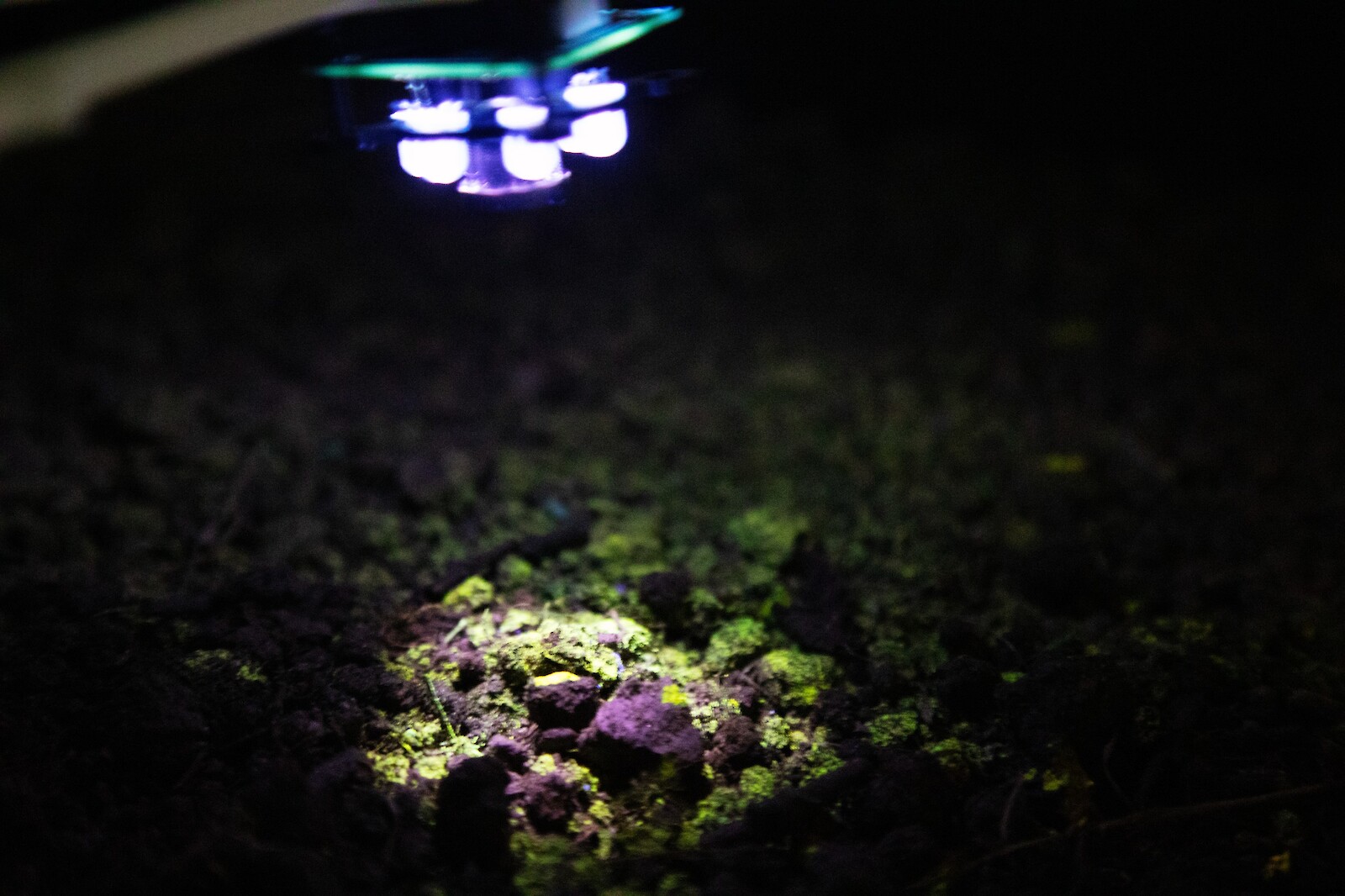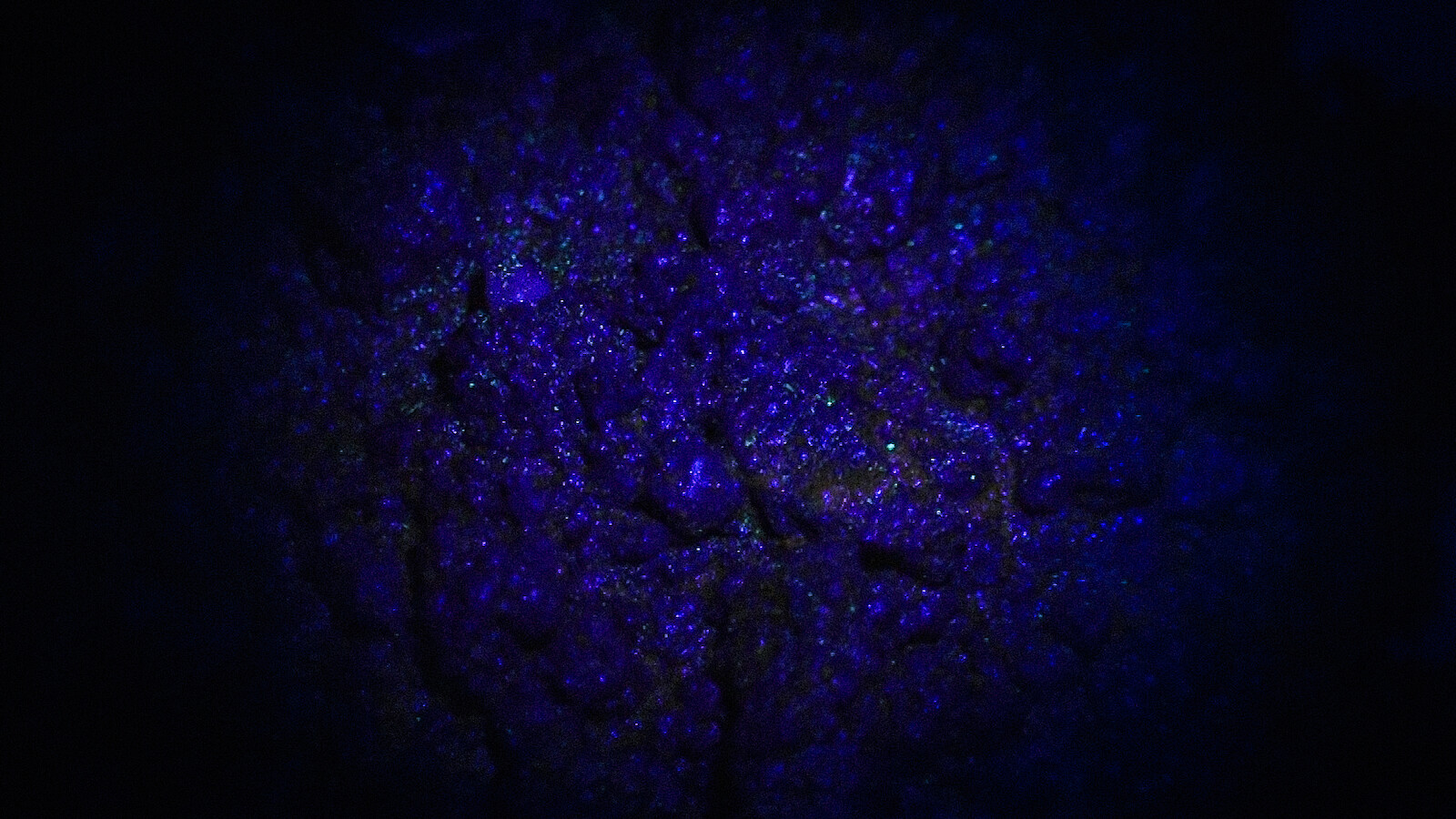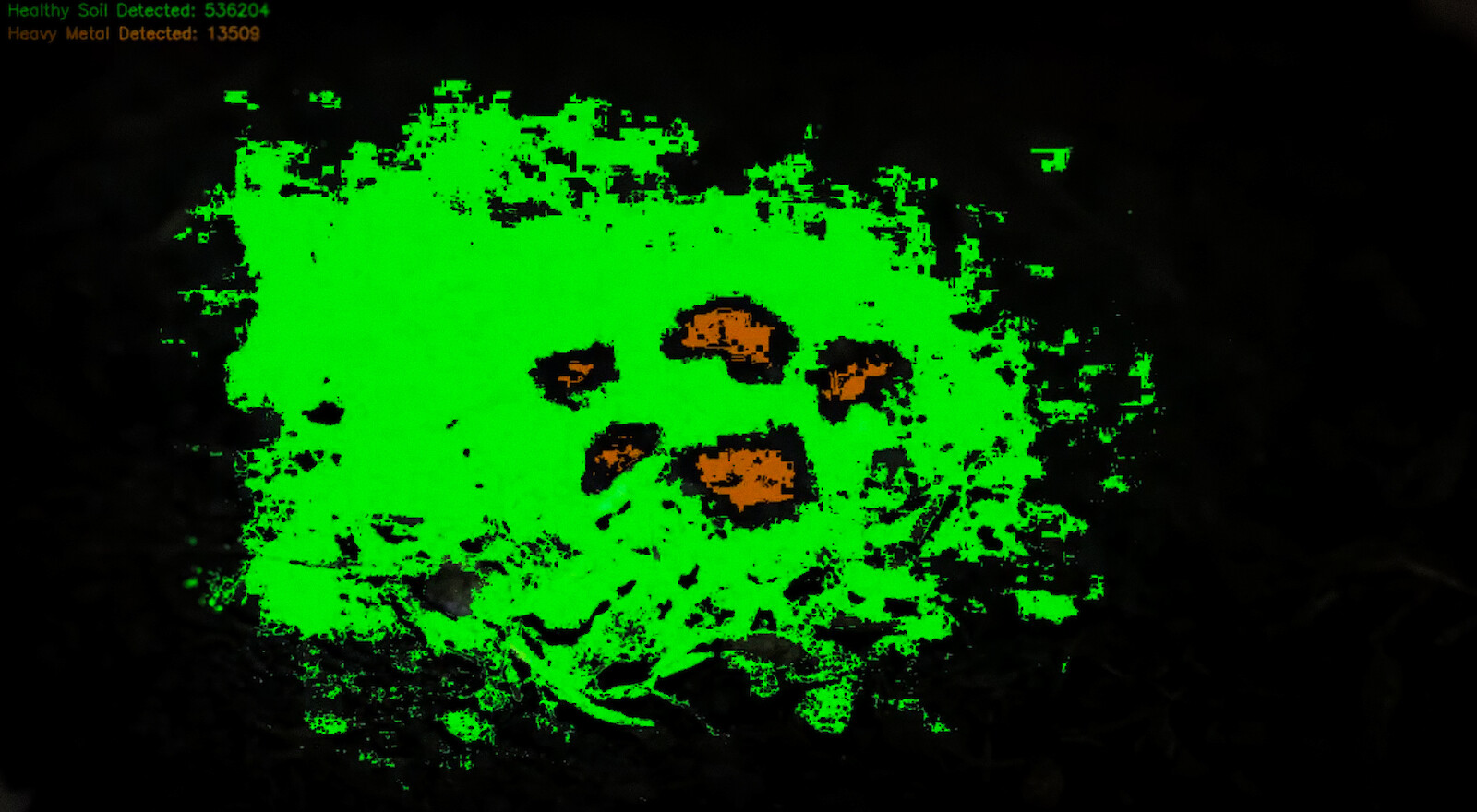CHORNOZEM
CHORNOZEM is the 2025 winner of the Biodesign Challenge in New York. See a recording of the final presentation here.
Ecocide is a military tactic aimed at the deliberate destruction of ecosystems and resources to destabilize regions. One of the most unexpected yet long-lasting consequences of the Russian invasion of Ukraine (since 2014 and ongoing) is the pollution of agricultural soils with heavy metals. These seemingly inconsequential traces of munitions, fuel, and explosives not only undermine the economic stability of the agrarian state but also inflict serious and long-term damage on ecosystems.
Unlike traditional laboratory methods of point-based soil analysis, our approach adopts a forensic logic to expose toxic hotspots in agricultural fields. We propose to integrate an activated curcumin solution into fertilizers to be sprayed after plowing. Curcumin naturally fluoresces under UV light but experiences a visual change after contact with heavy metal ions. Reusing military drone imaging and computer vision, we identify contaminated areas for further analysis and targeted remediation.
The goal of this project is to develop an accessible and low-cost method that enables farmers to independently conduct initial assessments of their fields to evaluate safety for cultivation.
We thus advocate for recognizing ecosystem destruction not as collateral damage but as a crime. We also emphasize the urgent need to develop accessible and open-source tools for monitoring, protecting, and restoring damaged ecosystems.
Students
Kirill Kohl, Olivia Menezes, Yaroslava Shylyk
Instructors
Prof. Dr. Karmen Franinović
Dr. Joëlle Bitton
Luke Franzke
Duy Bui
Course
Ecological Interactions / Biodesign Challenge, MA Spring Semester 25
